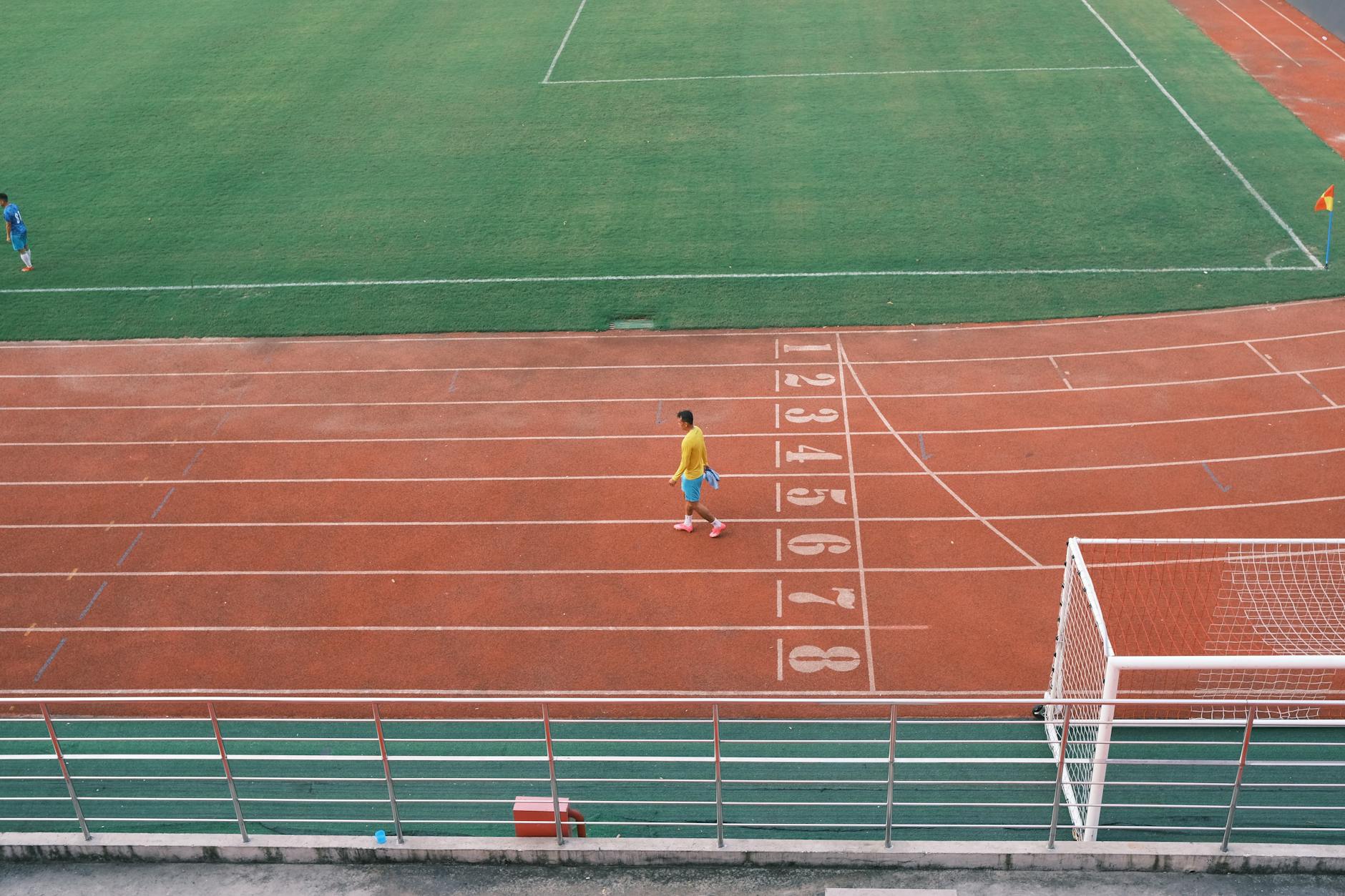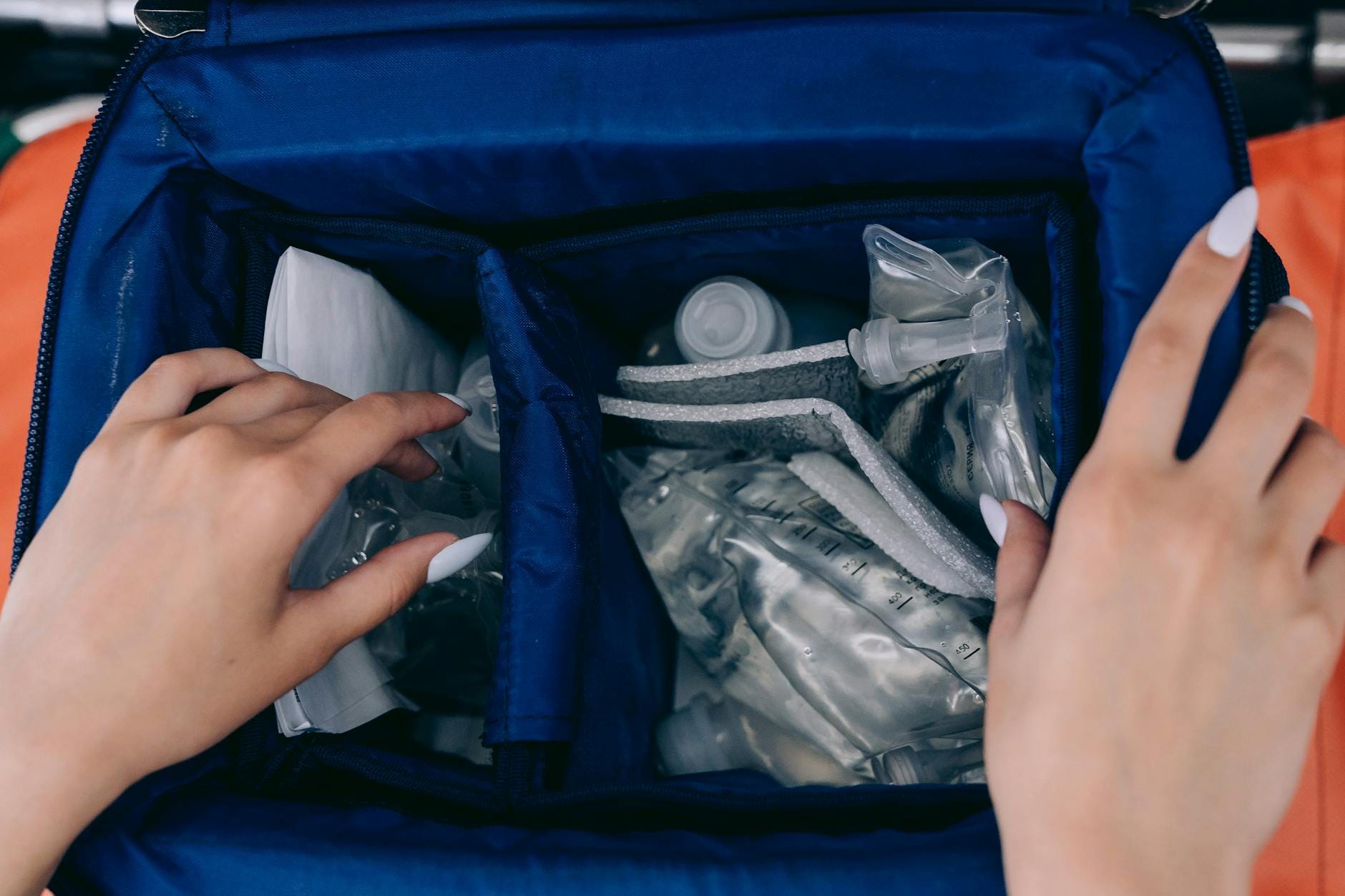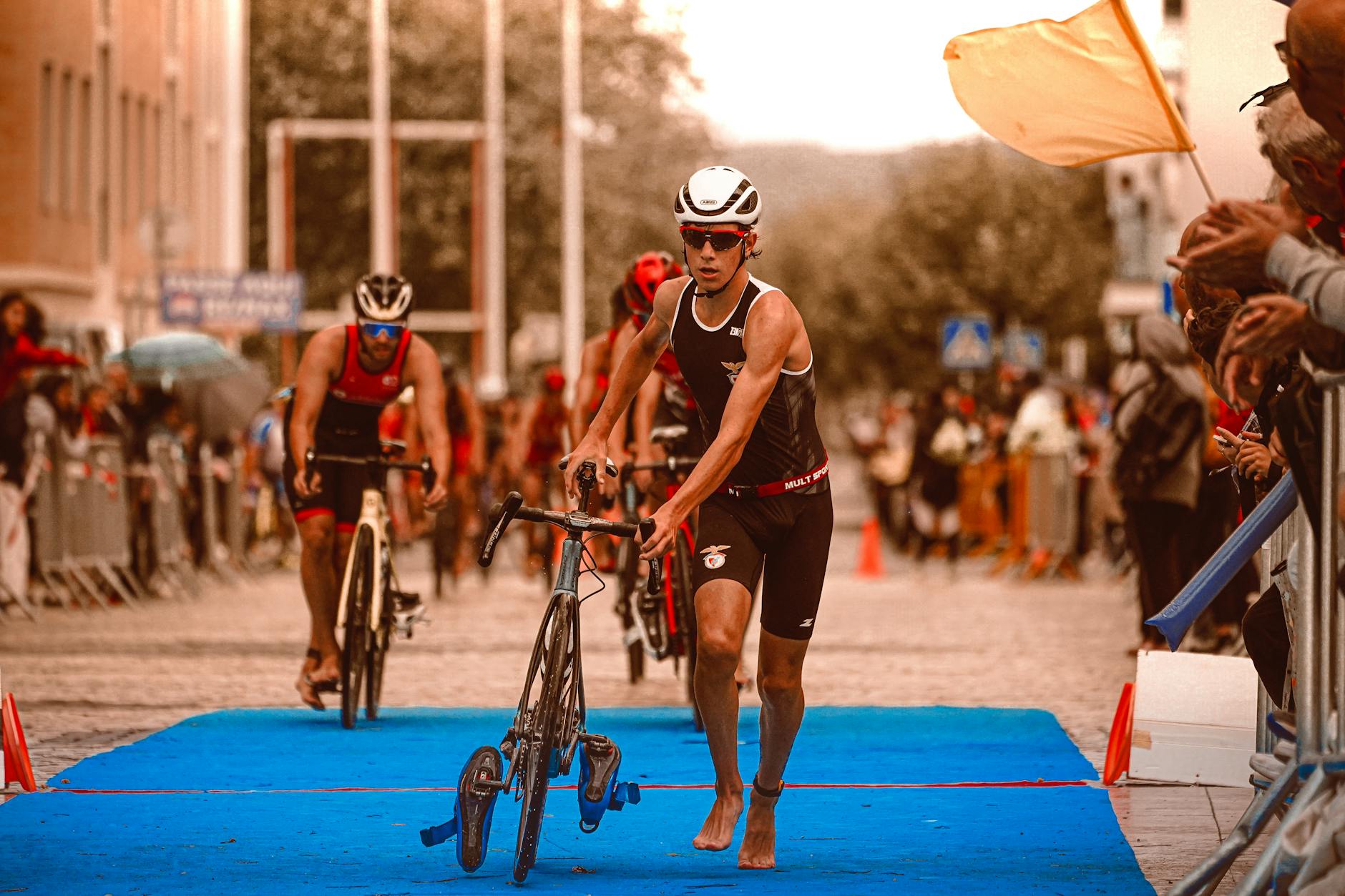What do I wish I knew before my first triathlon? To this day, I remember and recollect what happened when I registered for my first tri. The adrenaline, the butterflies and the pure excitement of setting off on this new journey! Oh I had a long way to go. As I waited at the line, heart thudding in grave anticipation and palms moist with sweat,I wished somebody had warned me that this was going to be much harder than advertised.
When I think back on the last several years, there was so much that I wish someone had told me before stepping into the world of triathlons. Lessons that ranged from the significance of adequate preparation to fundamental gear essentials I shockingly lacked, and everything in between. The things I should have eaten, how i didnt prepare for the mental gain, lets just say my Race Day could use a lot of work.
If it’s your first triathlon you’re contemplating, or if you’ve already bitten the bullet and signed up for one: good news! This is everything I wish someone told me before my first race. From how to train better or more effectively, some of the mistakes everyone makes in their first few — races; what you should have with gear ( and not ) all the way to those secrets that no one tells anyone….back from a race. Hang onto your future tri-sombrero because you are going to hear the stuff that only insiders know about being successful in this sweet multi sport! 🏅
Proper Training is Key
As I reflect on my first triathlon experience, I can’t stress enough how crucial proper training is. When I started, I had no idea how to structure my workouts effectively. Now, I know better.
Build endurance gradually
I learned the hard way that rushing into intense training can lead to burnout or injury. Instead, I now focus on gradually increasing my endurance. Here’s a simple progression I follow:
- Week 1-2: 20-minute sessions
- Week 3-4: 30-minute sessions
- Week 5-6: 45-minute sessions
- Week 7-8: 60-minute sessions
Focus on all three disciplines
Balancing swimming, cycling, and running is crucial. I used to neglect swimming, thinking I could make up for it in the other disciplines. Big mistake! Now, I ensure I dedicate time to each:
| Discipline | Weekly Sessions | Duration |
|---|---|---|
| Swimming | 2-3 | 30-45 min |
| Cycling | 2-3 | 45-60 min |
| Running | 2-3 | 30-45 min |
Incorporate brick workouts
Brick workouts, combining two disciplines back-to-back, were a game-changer for me. They simulate race-day transitions and build mental toughness. My favorite brick workout is a 30-minute bike ride followed immediately by a 15-minute run.
Don’t neglect rest and recovery
I used to think more training was always better. Now, I understand that rest is when my body adapts and gets stronger. I make sure to include:
- 1-2 complete rest days per week
- Active recovery sessions (light swimming or yoga)
- 7-8 hours of sleep nightly
With these training principles in mind, let’s move on to the gear you’ll need for your triathlon journey.
Gear Essentials
Now that we’ve covered the importance of proper training, let’s dive into the essential gear you’ll need for your first triathlon. As someone who’s been through this journey, I can’t stress enough how crucial it is to have the right equipment.
A. Invest in a comfortable wetsuit
I remember the first time I slipped into a wetsuit – it felt like a second skin. A good wetsuit not only keeps you warm but also provides buoyancy, making swimming easier. I’d recommend renting one first to get a feel for it before investing.
B. Choose the right bike
Selecting the perfect bike can be overwhelming, but it doesn’t have to be. I started with a road bike and gradually upgraded. Here’s a quick comparison of bike types:
| Bike Type | Pros | Cons |
|---|---|---|
| Road Bike | Versatile, affordable | Less aerodynamic |
| Triathlon Bike | Aerodynamic, faster | Expensive, less comfortable |
| Hybrid | Comfortable, stable | Slower, heavier |
C. Select appropriate running shoes
Your feet will thank you for investing in good running shoes. I learned the hard way that shoes that work for training might not be ideal for race day. Consider factors like:
- Cushioning
- Stability
- Weight
- Breathability
D. Don’t forget race-day accessories
Some essential accessories I always pack include:
- Goggles
- Race belt
- Bike repair kit
- Transition towel
Remember, comfort and functionality should be your top priorities when selecting gear. In the next section, we’ll explore nutrition and hydration strategies to fuel your triathlon journey.
What do I wish I knew before my first triathlon?
Nutrition and Hydration Strategies
When I first started training for triathlons, I quickly realized that nutrition and hydration were just as crucial as physical training. Here’s what I’ve learned about fueling my body for success:
A. Practice race-day fueling during training
I can’t stress this enough: never try anything new on race day! I make it a point to simulate race-day nutrition during my long training sessions. This helps me:
- Identify which foods and drinks work best for my body
- Train my stomach to handle nutrition while exercising
- Fine-tune the timing of my fueling strategy
B. Understand the importance of electrolytes
Electrolytes are vital for maintaining proper hydration and muscle function. I’ve learned to balance my electrolyte intake, especially during longer training sessions and races. Here’s a quick comparison of common electrolyte sources:
| Source | Sodium | Potassium | Magnesium | Calcium |
|---|---|---|---|---|
| Sports drinks | High | Moderate | Low | Low |
| Electrolyte tablets | High | High | Moderate | Moderate |
| Bananas | Low | High | Moderate | Low |
| Coconut water | Low | High | Moderate | Low |
C. Develop a personalized nutrition plan
Everyone’s nutritional needs are different, so I’ve created a plan tailored to my body and preferences. My strategy includes:
- Calculating my calorie needs based on training intensity
- Balancing macronutrients (carbs, proteins, and fats)
- Timing my meals and snacks around workouts
- Experimenting with different energy gels and bars during training
By focusing on these nutrition and hydration strategies, I’ve significantly improved my performance and endurance. Remember, what works for me might not work for you, so don’t be afraid to experiment and find your perfect fueling plan.
Race Day Preparation
Now that we’ve covered the essentials of training, gear, and nutrition, let’s dive into race day preparation. As a first-time triathlete, I can’t stress enough how crucial this aspect is for a successful and enjoyable experience.
A. Familiarize yourself with the course
Before race day, I always make it a point to study the course map thoroughly. If possible, I try to swim, bike, and run parts of the course beforehand. This hands-on approach gives me a significant advantage, as I can anticipate challenges and plan my strategy accordingly. What do I wish I knew before my first triathlon?
B. Practice transitions
I’ve learned that smooth transitions can make or break your race. Here’s a simple transition practice routine I follow:
- Set up a mock transition area at home
- Practice changing from swim to bike gear
- Time yourself and aim to improve
- Rehearse bike to run transitions
C. Create a detailed checklist
To ensure I don’t forget anything crucial, I use this comprehensive race day checklist:
| Category | Items |
|---|---|
| Swim | Wetsuit, goggles, swim cap |
| Bike | Bike, helmet, shoes, water bottles |
| Run | Running shoes, socks, hat |
| Nutrition | Energy gels, electrolyte drinks |
| Misc. | Race bib, timing chip, sunscreen |
D. Arrive early to set up
On race day, I make it a priority to arrive at least 90 minutes before the start time. This gives me ample time to:
- Set up my transition area
- Warm up properly
- Use the restroom facilities
- Mentally prepare for the race
By following these race day preparation strategies, I feel more confident and ready to tackle my first triathlon. Next, we’ll explore the crucial aspect of mental preparation, which can significantly impact your performance. What do I wish I knew before my first triathlon?
Mental Preparation Matters
As I reflect on my first triathlon experience, I realize that mental preparation played a crucial role in my performance. Here’s what I wish I had known about the mental aspects of triathlon:
Set realistic goals
Setting achievable goals is essential for a positive triathlon experience. I learned to:
- Break down my overall goal into smaller, manageable targets
- Focus on personal improvement rather than comparing myself to others
- Adjust my expectations based on my training progress
Visualize success
Visualization techniques helped me feel more confident and prepared:
- I imagined myself successfully completing each leg of the race
- I mentally rehearsed transitions to improve my efficiency
- I visualized overcoming potential challenges during the event
Develop coping strategies for challenges
Having strategies to deal with difficulties made a significant difference:
| Challenge | Coping Strategy |
|---|---|
| Fatigue | Positive self-talk and focusing on form |
| Anxiety | Deep breathing exercises and mindfulness |
| Setbacks | Remembering my training and staying flexible |
Embrace the journey, not just the destination
I discovered that enjoying the process was just as important as crossing the finish line:
- I celebrated small victories during training
- I connected with fellow triathletes and learned from their experiences
- I reminded myself of my personal growth throughout the journey
Mental preparation truly matters in triathlon. By setting realistic goals, visualizing success, developing coping strategies, and embracing the journey, I found myself better equipped to handle the physical and emotional demands of the race. Now, as I look forward to future events, I know that mental strength is just as crucial as physical training.
Common Rookie Mistakes to Avoid
As a seasoned triathlete, I’ve made my fair share of mistakes and witnessed countless others stumble along the way. Let me share some common rookie mistakes I wish I had known to avoid before my first triathlon.
What do I wish I knew before my first triathlon?
Starting too fast
One of the biggest pitfalls I’ve seen (and experienced) is the adrenaline-fueled sprint at the start. It’s tempting to go all out, but this can lead to early burnout. I’ve learned that pacing myself from the beginning is crucial for overall performance.
Neglecting proper warm-up
In my early days, I underestimated the importance of a good warm-up. Now, I know that a proper warm-up routine:
- Increases blood flow to muscles
- Improves flexibility
- Mentally prepares you for the race
Trying new gear on race day
This is a rookie mistake I deeply regret making. Never, ever use new gear on race day. Here’s why:
| New Gear Issue | Potential Consequence |
|---|---|
| Unfamiliar fit | Discomfort, blisters |
| Different performance | Unexpected challenges |
| Technical problems | Time loss, frustration |
Underestimating the importance of pacing
Pacing is an art I’ve come to appreciate. It’s not just about maintaining a steady speed; it’s about:
- Understanding your body’s limits
- Conserving energy for later stages
- Adapting to course conditions
By avoiding these common mistakes, I’ve significantly improved my triathlon performance. Remember, every triathlon is a learning experience, and even veterans make mistakes. The key is to learn from them and keep improving.
What do I wish I knew before my first triathlon?
Post-Race Recovery
Now that you’ve crossed the finish line, it’s crucial to focus on recovery. As someone who’s been through this, I can’t stress enough how important proper post-race care is for your body and mind.
A. Plan for immediate nutrition
Right after the race, I make sure to refuel my body with a mix of carbohydrates and protein. Here’s my go-to post-race nutrition plan:
- Banana with peanut butter
- Chocolate milk
- Energy bar or gel
B. Schedule adequate rest
I’ve learned that rest is just as important as training. After my first triathlon, I follow this rest schedule:
| Time Frame | Activity |
|---|---|
| 24-48 hours | Light stretching and walking |
| 3-5 days | Gentle swimming or yoga |
| 1-2 weeks | Gradually return to normal training |
C. Reflect on your performance
I always take time to analyze my race performance. Here’s what I consider:
- What went well?
- Where can I improve?
- How did my training prepare me?
- What surprises did I encounter?
D. Celebrate your achievement
Lastly, I never forget to celebrate! Completing a triathlon is a huge accomplishment. I treat myself to a nice dinner or a massage, and share my experience with friends and family. It’s important to recognize the hard work and dedication that went into this achievement. What do I wish I knew before my first triathlon?
Next, we’ll discuss some common rookie mistakes to avoid in your future triathlons.
Mentally retracing my steps on the way to who I have become as a triathlete. The foundations of a great triathlon experience are good training, the right kit and excellent nutrition. Other important things include, race day preparation and mental readiness, not falling into the usual rookie traps. I recently came to the realization that recovery from a race is just as important as doing the ultra itself.
Looking back wish I told my beginner self that it was okay to be a new player but at the same time, allow myself some more patience and deep breaths. Finishing a triathlon is an accomplishment, no matter how long it takes you to do so. No athlete on their first day was born a pro so keep in mind every triathlete, was once a beginner. Well, if you think about doing your first triathlon, do it! So get ready and mentally strong, just so you can cross that finish line with a sense of achievement no one else will have felt before.




